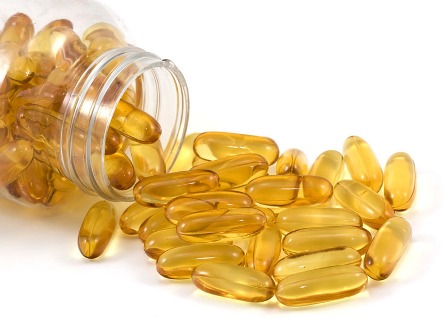Nutrition in Pregnancy
Nutrition during pregnancy is much more important than nutrition in other periods. The baby has only one source of food. Nutrition during pregnancy is an issue that needs attention because both the baby grows and matures and the needs of the mother are met. A healthy woman who conceives an appropriate weight gain of around 9 to 12 kilograms at the end of pregnancy with proper nutrition.
CALCIUM
Calcium is important for the development of your baby's bones and teeth, which begin to form in the 8th week of pregnancy. Twice the amount of calcium you normally need is required during pregnancy. Foods rich in calcium include cheese, milk, yogurt, and green leafy vegetables. But remember that dairy products are also rich in fat. For this reason, you should prefer skimmed milk and yogurt. You can meet the increased daily calcium requirement with 85gr of skim cheese, 7 slices of white bread, 2 glasses of milk, and 170gr of sardines.
• White Bread
• Skimmed Milk
• Semi Fat Cheese
• Curd Cheese
• Fresh Almond
• Sardines
PROTEIN
To increase the protein requirement during pregnancy, you should take various foods containing protein. Since foods made from fish, meat, legumes, and milk are rich in protein, they should not be taken excessively and the lean part of the meat should be preferred.
• Chicken meat
• Fish
• Yogurt
• Peanut
• Peanut Butter
• Lean Red Meat
• Egg
• Lentil
• Cheddar cheese
C VITAMIN
Vitamin C is beneficial for the placenta, increases your body's resistance to disease factors, and facilitates the absorption of iron in the intestines. Vitamin C is found in fresh fruits and vegetables. Since it is not stored in the body, a certain amount should be taken every day. Most of the vitamin C is lost in foods that are stored and cooked for a long time. Therefore, you should consume the foods while they are fresh, and eat the vegetables either raw or boiled a little.
• Cabbage
• Grapefruit
• Tomato
• Cauliflower
• Red and Green peppers
• Brussels Sprouts
• Orange
• Potatoes
• Strawberry
FIBER FOODS
Fibrous (pulp) foods, which should form a large part of your daily diet, are very useful in preventing constipation, which is common during pregnancy. Vegetables and fruits are rich in fiber. You can eat a lot every day. Whole grain foods also contain fiber, but should not be eaten too much as it impairs the absorption of some other nutrients.
• Whole wheat bread
• Raspberry
• Peas
• Brown rice
• Raisins
• Nuts
• Whole wheat pasta
• Dried apricots
• Leek
FOLIC ACID
Folic acid is necessary for the development of the baby's central nervous system, especially in the first weeks. Since it is not stored in the body and more than normal is needed during pregnancy, it should be taken every day. Fresh green vegetables are a source of folic acid. Since the folic acid in them will decrease with cooking, you should eat them raw or boiled a little.
• Spinach
• Hazelnut
• Whole Wheat Bread
• Peanut
• Cauliflower
IRON
During pregnancy, more iron than normal is needed both for the storage of the iron that the baby will use after birth and for the transport of sufficient oxygen to your blood, which has increased due to pregnancy. Iron in animal foods is absorbed more easily than in vegetables and dried fruits. It must be rich in vitamin C. Diet alone is not enough to eliminate the iron deficiency. Therefore, iron-containing drugs must be taken to meet the increased iron need. Iron is one of the main needs of the baby and mother. Some physical symptoms such as pallor and hair loss also occur.
• Lean Red Meat
• Tuna
• Liver
THE MOST BENEFITS OF PREGNANCY
• Milk, yogurt, cheese: Calcium, protein
• Green leafy vegetables: Vitamin C, fiber, folic acid
• Lean red meat: protein, iron
• Sardines: calcium, iron, protein
• Orange: Vitamin C, fiber
• Fish: protein
• Whole wheat bread: protein, fiber, folic acid
THE MOST HARMFUL FOODS IN PREGNANCY
• Desserts and confectionery in general
• Sugary marmalades
• Liquors
• Carbonated and sugary drinks, cola soda, etc.
• Snacks
• Fries
• Too much coffee and/or tea
• Overeating
Use of Omega Oils
Some of the fatty acids necessary for our body are not synthesized in our body.
It must be taken from outside. These are vital precautions for health.
During pregnancy, Omega 3 and Omega 6 fatty acids are supplied by the fetus from the mother through the placenta.
Especially DHA (Docosahexaenoic acid) is critical for the development of the central nervous system in the fetus and neonatal period.
Omega 3 Fatty Acids
-DHA
* Cognitive function development
*Visual function development
* Improvement of cardiovascular function
-EPA
* Inflammation, cardiovascular functions
-SUPERB
*Essential fatty acid support
First of all, let's get to know Omega 3 and Omega 6 fatty acids;
Omega 6 Family
-ESSENTIAL FATTY ACIDS
*Linoleic acid; sunflower, corn, soybean, and safflower oils, green leafy vegetables, nuts, and seeds
-POLYUNSATURATED FATTY ACIDS
*Gamma-linoleic acid (GLA); evening primrose oil, black currant oil
*Arachidonic acid; egg yolks, meats (especially offal)
Omega 3 Family
-ESSENTIAL FATTY ACIDS
*ALFA - Linolenic acid; flax, canola, soybean, walnut oils, nuts, and seeds
-POLYUNSATURATED FATTY ACIDS
*Eicosapentaenoic Acid (EPA)
*Docosahexaenoic acid (DHA)
Fish oil, oily fish
DHA and EPA are the most important long-chain Omega 3 fatty acids in pregnancy.
Information & Appointment Form
 >
>

